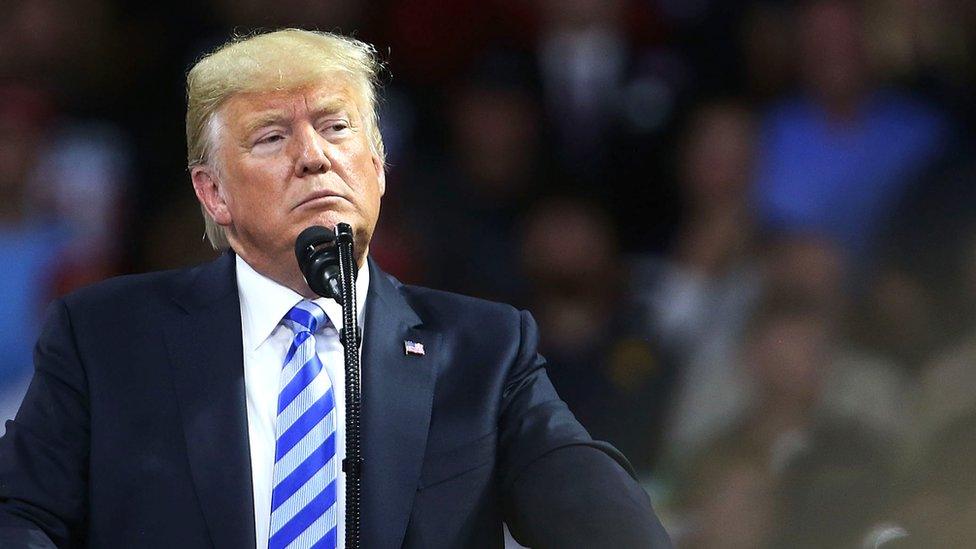What is impeachment and how does it work?
- Published

Donald Trump has found himself at the centre of an important news story at the moment.
After a vote by politicians, the US President has been impeached.
But what does this mean and how serious is it?
Read on to find out more.
What is impeachment?
Impeachment proceedings are a rare event in the US and are a final check on the president's power.
The United States Congress - the part of the US government that writes and brings in laws - can put certain senior American officials like the president on trial.
The American Constitution, which is basically a rulebook for US citizens, states the president can be impeached and removed from office for a number of offences.
These include "treason, bribery or other high crimes and misdemeanours".
How does impeachment work?
The Senate and the House of Representatives - which together make Congress - are based in the US Capitol building in Washington DC
The process of impeachment is started by the House of Representatives, which is one half of the US Congress, their version of Parliament.
More than half of politicians there have to vote for impeachment for it to happen.
When, or if, that vote passes a trial is held in the Senate - the second half of Congress.
This is a bit like a courtroom, where other senior politicians called senators act like a jury to decide whether or not a president is guilty.
A this trial, two-thirds of senators must vote in favour of impeaching the president in order to remove him or her from the job.
Has it been done before?
The only two US presidents to have been impeached in history are Bill Clinton (left) and Andrew Johnson (right), but neither were convicted and removed from office
The last US president to be impeached - when the House of Representatives voted in favour of the process - was Bill Clinton in 1998.
It also happened in 1868 to Andrew Johnson, but neither Mr Clinton or Mr Johnson were convicted by the Senate.
So it's important to understand that impeachment does not automatically mean that a president will be removed from the job.
Up until now, no US president has been removed from office as a result of impeachment.
Many people believe that Mr Nixon would have been impeached and sacked from his job if he hadn't resigned
The one who probably came closest was Richard Nixon.
But he quit as President of the United States in 1974 before impeachment proceedings could begin, and would have most likely removed him from office.
What would happen if Donald Trump is removed from office?
Now that Mr Trump has been impeached, if he's found guilty at his trial in the Senate and removed from power, the vice-president Mike Pence would take the oath of office and become the next US president.
- Published18 July 2019
- Published23 August 2018
- Published9 November 2016
- Published12 November
- Published7 November 2016
